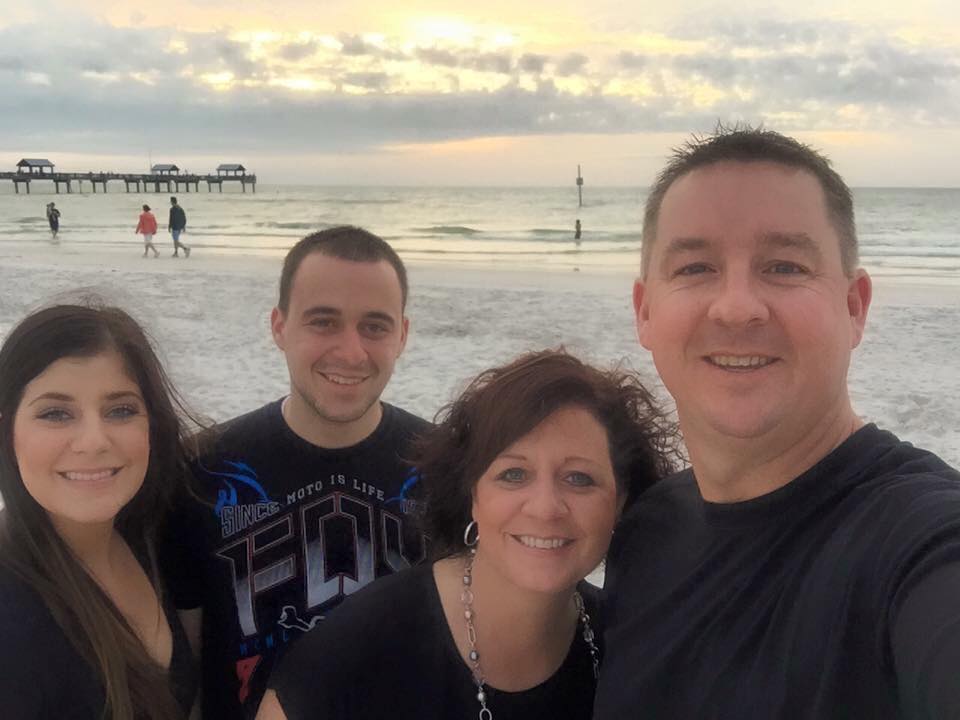Staying Strong as a Caregiver: Roles of a Caregiver
December 28, 2020
Written by: Courtney Benisch | Sr. Manager of Programs & Partnerships for Head for the Cure
Being a caregiver for a loved one means you are by their side ready to do anything and everything at the drop of a hat. The list of roles is very long, and it is purely by instinct and varies in each situation. When my mom was diagnosed with a Glioblastoma in March of 2016, roles were divvied up to each family member and away we went.
The day my mom was diagnosed, I instantly knew I had to move back in with her and my stepdad. It was a split-second decision because I wanted to be there to help take care of my mom as much as possible, and I couldn’t have done that living 45 minutes away. Moving back was not ideal for a 23-year-old, but neither was the situation, and my mom was my main focus.
Once my mom got home after surgery and 2 weeks of physical therapy, my brother, stepdad and I instantly went into taking care of my mom 24/7. My stepdad would handle filling prescriptions and putting them out for the week; deal with all the insurance and disability items; schedule doctor appointments; and take care of the house. Me being the logistical person, I made sure to have my mom’s prescriptions on my phone to have ready at the many doctor appointments; I would post updates to the Caring Bridge and Meal Train websites; answer all questions via text, phone, or Facebook so my stepdad wouldn’t have to deal with the added stress; and help take care of the house. Since my brother lived out of the house, he would attend all the doctor appointments, come over to the house as much as possible; and communicated updates with our family and friends.
All of our roles were different because of our personal lives, work lives, and living situations. The fact that my brother and I were in our 20’s made things different too because we were adults and wanted to help make decisions for our mom and do what we could. However, if my brother and I were a lot younger, things would have been drastically different. It makes you grow up fast and I never thought I would learn so much about short-term and long-term disability, how social security works, and even how to give blood thinner shots to my mom at one point.

Since day one, my family made all decisions as a collective group. We always talked to each other about surgery options, how to proceed with treatments, what questions to ask the doctor, and towards the end of her brain cancer fight, those tough items like hospice and funeral plans. Our doctors knew that we made decisions as a family because all of us had a role in taking care of her. Every family and situation is different, but we wanted to make sure that my mom’s doctors knew how we worked as a family, rather than them reporting to just my stepdad. It is incredibly important to establish a good rapport with hospital staff and doctors because that will make all communication clearer and more effective.
It was the toughest 9 months of my life, and my family’s lives, but we did it together, and that is what matters most. We all took on roles because my mom needed assistance. As a caregiver you do it because you have to and wouldn’t change a thing about it. We do it because we care for our loved one so much and we know they would do the same if the roles were reversed. As a family. we grew so much closer and knew if we could get through this, we could get through anything.
